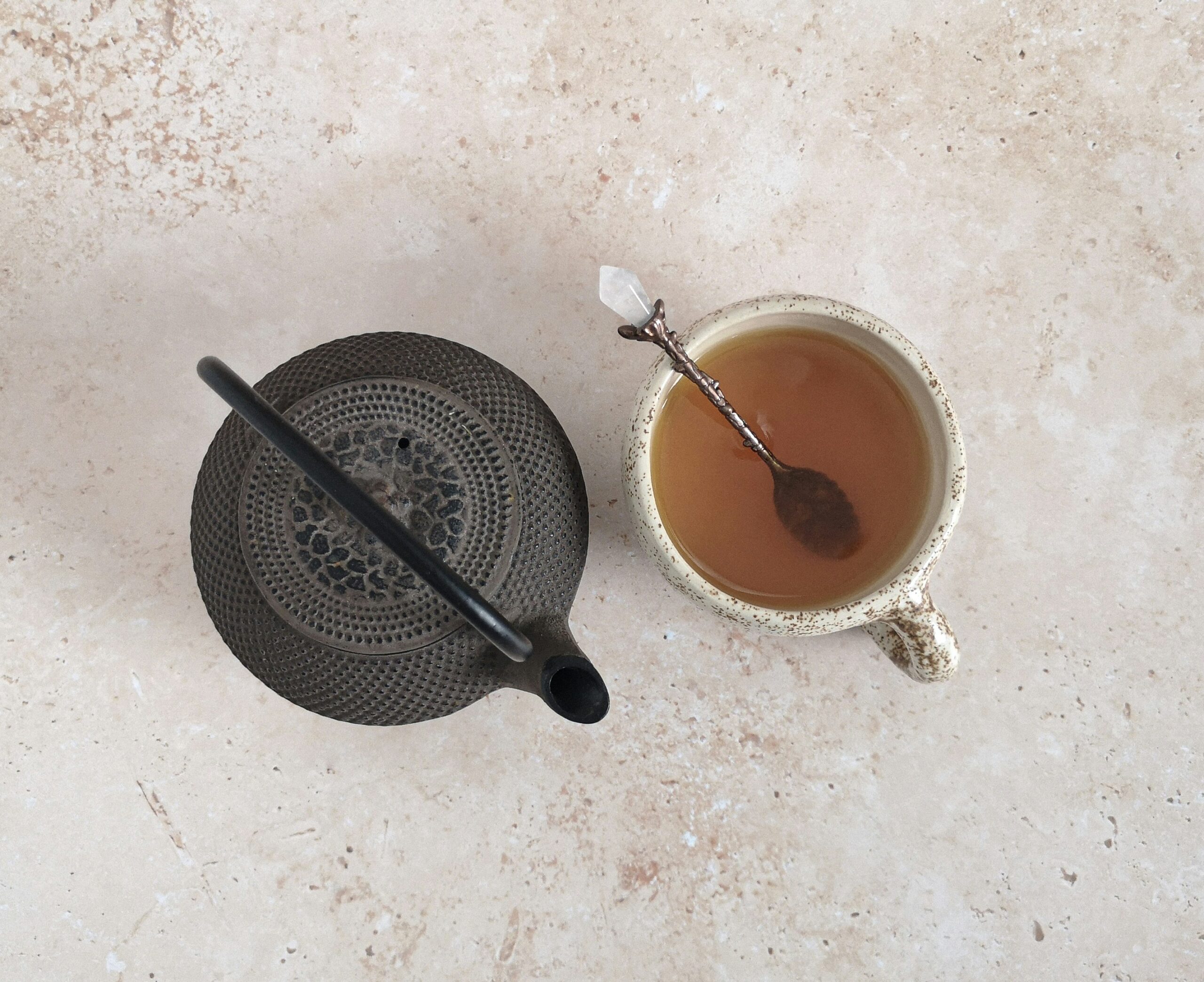
Pregnancy brings about many changes, and maintaining good health is crucial during this time. Ensuring you have enough collagen can be a valuable part of your pregnancy wellness plan. Yes, you can take some collagen supplements while pregnant, but it’s important to choose wisely. Some supplements can help support skin elasticity and joint health, making pregnancy a bit more comfortable.
Selecting the best collagen supplements involves paying attention to product ingredients and quality. Many experts recommend opting for supplements derived from natural sources, like marine or bovine collagen. It’s a good idea to consult with your healthcare provider to ensure that whatever you choose is safe for your individual needs.
Understanding the benefits of collagen during pregnancy can help you make informed decisions. Besides supporting skin and joint health, collagen may aid bone strength and overall wellness. Always look for products that have been tested for safety, especially for expectant mothers.
Key Takeaways
- Consult your healthcare provider about collagen supplements when pregnant.
- Choose high-quality, natural collagen sources like marine or bovine.
- Collagen supports skin, joints, and bone health during pregnancy.
Understanding Collagen and Pregnancy
Collagen is a key protein that affects your skin elasticity, helps in preventing stretch marks, and supports ligaments. During pregnancy, its presence becomes even more significant due to the changes your body undergoes. Different types of collagen play unique roles in this process.
The Role of Collagen in Pregnancy
During pregnancy, your body stretches and grows to provide a nurturing environment for your baby. Collagen, made of amino acids, is essential in supporting this transformation. It helps maintain skin elasticity, which can be crucial in reducing stretch marks. As your body changes, collagen strengthens the ligaments and tissues, providing stability and support.
Some women notice improvements in hair growth and nail strength during pregnancy. This is often due to increased collagen production. Collagen’s effects on skin and tissue health can help you feel more comfortable and confident. Including collagen-rich foods or supplements may aid in these benefits.
Types of Collagen and Their Importance
Collagen comes in several types, each with specific benefits. Type I collagen is the most abundant and plays a major role in skin and tissues. It supports skin elasticity and can reduce the appearance of stretch marks during pregnancy. Type II collagen supports joint and cartilage health, aiding the body during the physical demands of pregnancy.
Understanding which types of collagen are more beneficial can help you choose the right supplement or diet. Consuming a variety of collagen types ensures a balanced impact on your skin, hair, and ligaments. This can make a noticeable difference in your pregnancy experience, leading to improved comfort and well-being.
Choosing the Best Collagen Supplements
When selecting collagen supplements, understanding different sources and processing methods is crucial. Consider marine or bovine sources, check for hydrolysed forms for absorption, and ensure high-quality production standards.
Marine vs Bovine Collagen
Marine collagen is derived from fish and is often preferred for its high absorption rate. It contains Type I collagen, which is excellent for skin health. It’s also considered eco-friendly due to sustainable fishing practices. Bovine collagen comes from cows and contains Type I and III collagen, which benefits skin, muscles, and bones. Ensure it’s from grass-fed cows to avoid hormones or antibiotics.
Hydrolysed Collagen for Enhanced Absorption
Hydrolysed collagen, also known as collagen peptides, is processed to break down proteins into smaller pieces for better absorption. This type is beneficial because it mixes easily into liquids and is more readily absorbed by the body. Look for products labelled as “hydrolysed” or “collagen peptides” to ensure you’re choosing the best collagen to take.
Criteria for High-Quality Supplements
When choosing a collagen supplement, check that it’s non-GMO and free from additives. Look for third-party testing to ensure product safety, especially during pregnancy. Quality brands often highlight their sourcing, such as grass-fed or wild-caught origins. Also, check the purity and collagen content per serving to ensure you’re getting an effective dose.
Health Benefits of Collagen Supplementation
Collagen supplements are popular for their potential to improve various aspects of health. These benefits include enhancing joint and bone strength, boosting skin elasticity, and promoting hair and nail growth.
Supporting Joint and Bone Health
Collagen is key to maintaining healthy joints and bones. It’s a protein found in your cartilage, which helps cushion your joints. Taking collagen supplements may help reduce joint pain and improve flexibility. It can be especially helpful in easing discomfort associated with ageing or physical activity.
For bone health, collagen provides structure and support. Some studies suggest that collagen supplementation can lead to increased bone density. This is particularly important during pregnancy, as your body experiences extra stress. It’s important to choose a high-quality supplement to maximise these benefits.
Enhancing Skin Elasticity and Preventing Stretch Marks
Pregnancy often results in changes to the skin, like stretch marks. Collagen can assist with maintaining skin elasticity. By supporting skin elasticity, collagen supplements may help reduce the appearance of stretch marks.
Collagen encourages your skin’s resilience, making it more robust against stretching. It might help keep your skin smooth and supple during pregnancy. While results will vary among individuals, consistent supplementation can offer some protective benefits for your skin.
Promoting Healthy Hair and Nail Growth
During pregnancy, changes in hormones can affect your hair and nails. Collagen can help improve the health of both. It provides the amino acids that are the building blocks for keratin, a protein essential for hair growth. This can lead to stronger hair that is less likely to be brittle or fall out.
Nail health can also see improvements. Brittle nails may become stronger and more durable with regular collagen use. By ensuring you have enough collagen, you can support both your hair and nail health, which is useful during the changes your body undergoes in pregnancy.
Safety and Side Effects
When considering collagen supplements during pregnancy, it’s crucial to understand their safety and potential side effects. Knowing the properties of collagen, particularly type I collagen, can help you make informed decisions.
Evaluating the Safety of Collagen During Pregnancy
Collagen, primarily type I, is a protein that supports skin, bones, and connective tissues. During pregnancy, ensuring you’re using safe supplements is essential. General guidelines indicate collagen is safe for most individuals, including pregnant women. Findings suggest there are no known adverse effects on pregnancy outcomes from collagen use, which aligns with its natural presence in the body.
It’s always wise to consult your healthcare provider before starting any supplement, especially during pregnancy. They can offer personalised advice based on your health needs and any dietary restrictions you may have.
Possible Side Effects and How to Mitigate Them
Though collagen is generally well-tolerated, some might experience mild side effects. These can include digestive issues like bloating or a feeling of fullness. To minimise such effects, start with a lower dose and gradually increase as your body adjusts.
Consider collagen sources that are specifically marked for safe use during pregnancy. Opt for high-quality, reputable brands to ensure purity and safety. If side effects persist, discontinue use and consult your healthcare provider. They may suggest alternative forms of protein or other supplements that align better with your nutritional needs during pregnancy.
Integration into Prenatal Care
Integrating collagen supplements into your prenatal routine involves understanding how they can complement prenatal vitamins and impact your daily protein intake. These aspects are crucial for ensuring a well-rounded approach to pregnancy nutrition.
Incorporating Collagen with Prenatal Vitamins
When adding collagen to your regimen, it’s important to balance it with your prenatal vitamins. Collagen is primarily made of amino acids, which support skin, joints, and connective tissue development. Prenatal vitamins contain essential nutrients like folic acid and iron, which are crucial during pregnancy. Consider consulting with your healthcare provider to ensure that your collagen intake complements rather than conflicts with the nutrients in your prenatal vitamins. This approach helps maximise the benefits of both supplements.
Collagen and Your Daily Protein Intake
Collagen can be a valuable addition to your daily protein intake. During pregnancy, your protein needs increase to support fetal growth and maternal health. Collagen provides a specific set of amino acids, including glycine and proline, which may not be as abundant in other protein sources. Incorporating collagen into your diet can help meet these increased needs. It is important to track your protein intake to ensure you are meeting daily requirements while using collagen as a supplementary source rather than a replacement.
Nutritional Insights and Expert Advice
Exploring collagen supplements can be important for expecting mothers. It’s vital to weigh expert opinions and understand how collagen compares to other supplements in maintaining health during pregnancy.
Opinions from Nutrition Experts on Collagen Supplementation
Nutrition experts often discuss the role of collagen during pregnancy. Some suggest that collagen can provide key amino acids like glycine and proline, which may aid in joint health and skin elasticity.
However, experts advise caution. The understanding of collagen’s role during pregnancy is still developing. Notably, collagen supplementation during pregnancy is not universally recommended. According to some reviews, it’s best to consult with a healthcare professional before adding any supplement when you’re expecting.
Additionally, you should focus on a balanced diet. This includes foods that naturally boost collagen production, like those rich in vitamin C. Leafy greens and citrus fruits can be excellent choices to support your overall nutrition.
Comparing Collagen to Other Nutritional Supplements
When comparing collagen to other supplements, it’s helpful to consider what your body needs during pregnancy. For instance, folic acid is crucial for fetal development, while iron supports a healthy pregnancy.
Unlike these established supplements, collagen offers support for skin and connective tissues. However, its importance is less clear compared to more essential vitamins and minerals.
You may also find it useful to assess the benefits against other options such as protein powders or omega-3 supplements. Both play significant roles in maintaining your health and can often be incorporated into your diet without additional supplementation. Consult with your healthcare provider to tailor your choices based on personal health needs.
Postpartum Considerations and Breastfeeding
After giving birth, maintaining proper nutrition is crucial for recovery and breastfeeding. Collagen can play a helpful role during this time for joint health and skin recovery.
Continuing Collagen Supplementation Postpartum
After pregnancy, your body needs support to heal and regain strength. Continuing to take collagen supplements can provide benefits for your joint health, as the strain from carrying extra weight during pregnancy can linger. Collagen peptide supplements are particularly effective because they are easy to absorb. This can help improve skin elasticity and overall hydration, which is especially important as your body adjusts postpartum.
For convenience, collagen protein powder can be a great way to incorporate collagen into your diet. You can mix it into smoothies, soups, or even baked goods. When choosing a supplement, look for those that are rich in types I and III collagen, which support skin and joint recovery specifically.
Collagen’s Impact on Breastfeeding
Breastfeeding requires extra energy and nutrients. Collagen can support both you and your baby during this time. It’s rich in essential amino acids, which are building blocks for proteins in the body. This can be beneficial for maintaining your gut health, a crucial factor for nutrient absorption.
Ensuring you’re well-hydrated while breastfeeding is key, and collagen can aid in maintaining hydration levels in your skin and tissues. Though research is still evolving, collagen is generally considered safe for breastfeeding mothers. As always, consult your healthcare provider for personalised advice, especially if you plan to introduce new supplements into your routine. For further details, consider reviewing how collagen and breastfeeding relate in studies like those found in clinical sources.
Dietary Sources of Collagen
Consuming natural sources of collagen can be beneficial during pregnancy. These sources can be easily added to your diet and provide essential nutrients without relying on supplements.
Bone Broth as a Natural Source
Bone broth is one of the best natural sources of collagen. Made by simmering animal bones and connective tissue, this broth is rich in collagen and nutrients like calcium and magnesium. This tasty broth helps support joint and skin health. You can make bone broth at home using beef, chicken, or fish bones. Add some vegetables and herbs for flavour.
Not only is bone broth full of collagen, but it also contains amino acids like glycine and proline. These are important for the body’s natural collagen production. Drinking bone broth can be a comforting and nutritious way to boost your collagen intake, especially during pregnancy.
Foods Enriched with Collagen-Promoting Nutrients
Certain foods are rich in nutrients that help your body produce more collagen. For instance, foods high in vitamin C, like oranges and broccoli, are crucial because they help form collagen. Also, zinc and copper play a role in collagen production, which can be found in nuts and seeds.
Protein-rich foods like chicken, fish, and eggs provide amino acids needed for collagen synthesis. Leafy greens, such as spinach and kale, also contribute to healthy collagen levels. By including these foods in your diet, you can naturally boost your body’s ability to produce collagen, supporting both your own health and that of your baby.
RELATED: Natural Remedies for Pregnancy Nausea: Effective Solutions and Tips
RELATED: Home Remedies for Cold During Pregnancy: Safe and Effective Solutions



Comments +